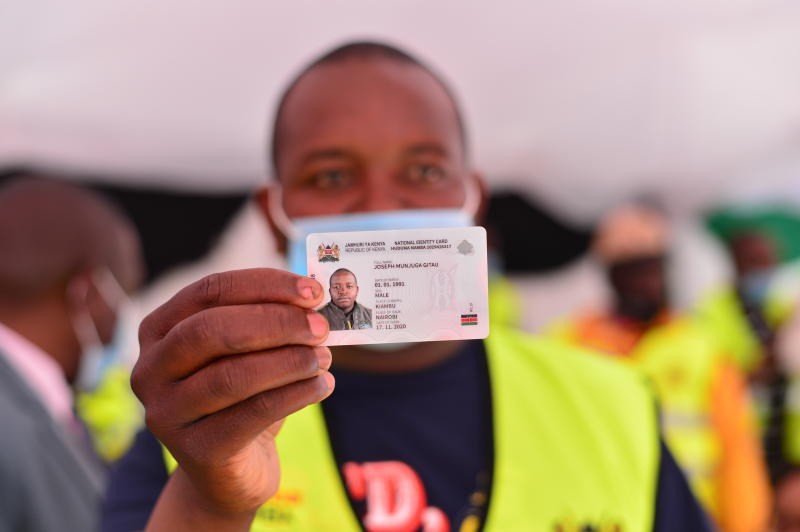The High Court has once again suspended the government’s implementation of the Maisha Namba digital identity card, which is set to be renewed every 10 years.
Justice Lawrence Mugambi has issued a conservatory order halting the implementation of the Unique Personal Identifier (Maisha Namba), the third-generation Maisha Card, the Maisha Digital ID, and the Maisha Database until a new application is heard and decided.
Introduced in 2023 to replace second-generation identity cards, the Maisha Card features a Unique Personal Identifier known as Maisha Namba.
The Haki na Sheria Initiative, a human rights group, has challenged this rollout for the second time, disputing the Kenya Kwanza administration’s move.
The group’s lawyers, Yussuf Bashir and Summayah Mokku, argue that the government has confirmed plans to mass-collect, process, and issue the UPI and Maisha Digital ID while enrolling the Maisha database. They also raised privacy concerns, noting that the database could be accessible to private firms.
The lawyers criticised the 10-year validity period of the Maisha Card, arguing that those who cannot afford the Sh1,000 renewal fee or Sh300 for first-time applicants may be marginalised.
“The imposition of these costs on citizens, especially given other concerns, is premature. Refunds will also be challenging if the Maisha ecosystem is deemed unconstitutional,” said the lawyers.
Bashir and Mokku also expressed concerns about potential biases and exclusions in the vetting process, reflecting issues experienced with Huduma Namba, where delays affected the Nubian community.
Further concerns were raised about the eligibility of Maisha Cardholders whose cards expire in 2032, potentially coinciding with the end of President William Ruto’s term, and whether they might be excluded from voting or essential services.
Immigration Principal Secretary Julius Bitok assured the public that Maisha Card renewal is not linked to elections.
“The Maisha Card features a machine-readable microchip with security features and personal details. Like ATM cards, the microchip has a maximum shelf life of 10 years from issuance,” Bitok said.
He defended the renewal process, noting that similar practices are used in countries such as Uganda, Nigeria, Tanzania, Senegal, and France.
The Maisha Namba will serve as a birth certificate number for newborns and will be used for registration in educational institutions and services such as the Social Health Insurance Fund, which has replaced the NHIF.
Upon reaching 18, this identifier will grant access to services provided by the Kenya Revenue Authority and the National Social Security Fund.
This marks the third attempt to halt the Maisha Card implementation.
– By Wanjiku Hilda



